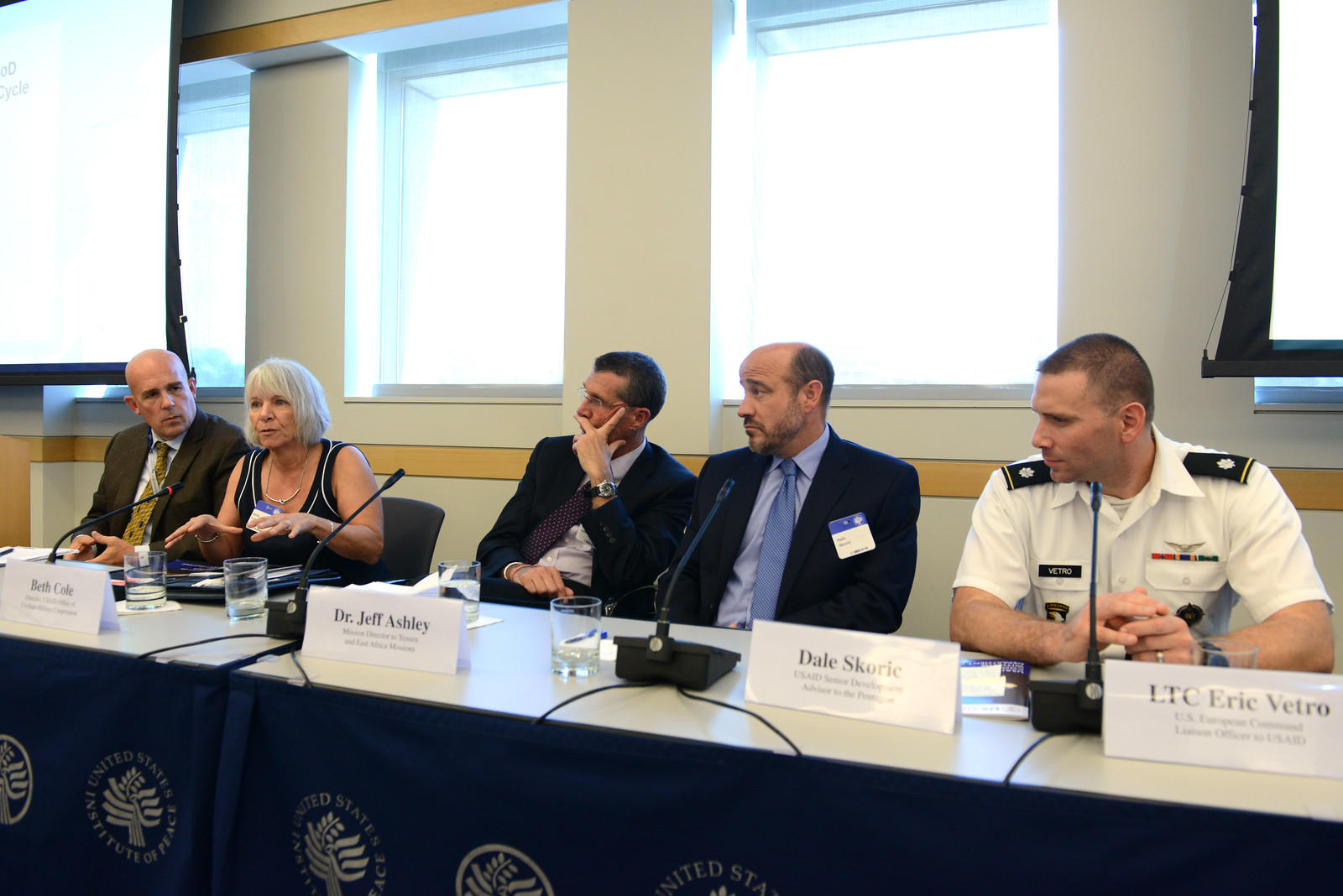USAID Civilian-Military Coordination Policy Launch
In Afghanistan and Iraq, but also in other nations around the globe, the United States’ military and development agencies have been working more closely to reduce tensions or hostilities, build the capacities of host governments, and strengthen America’s national security. On June 18, officials from the U.S. Agency for International Development and the Defense Department discussed USAID’s updated policy to guide its work alongside the military.

In the past decade, the U.S. Agency for International Development has taken on increasingly complex challenges alongside America’s military forces. That partnership isn’t new; USAID has worked alongside the military since the agency’s creation amid the Vietnam War. But U.S. national security strategies continue to demand a deeper coordination of military and development approaches to conflicts abroad. While this joint work has been most visible in Afghanistan and Iraq, it has become the “new normal” worldwide. Recent years’ cooperation by USAID and the military in lands as disparate as the Balkans, Colombia, the Philippines and the Sahel have offered lessons on how best to shape this broader, more intricate partnership. And that has led USAID to issue a new Policy on Cooperation with the Department of Defense.
What will this mean in the field, notably for the many U.S. government agencies and non-governmental organizations likely to be working in conflict zones? On June 18, USAID officials, including Beth Cole, the agency’s director for civilian-military cooperation, described the new policy. In a forum moderated by USIP, officials from USAID and the Defense Department then discussed with attendees how the new plan will update USAID’s work abroad.
Speakers included:
- Beth Cole
Director, USAID Office of Civilian-Military Cooperation - Dr. Jeff Ashley
Mission Director to Yemen and East Africa Missions - Dale Skoric
USAID Senior Development Advisor to the Pentagon - LTC Eric Vetro
U.S. European Command Liaison Officer to USAID - Jeff Helsing, Opening Remarks
Associate VP Academy, USIP - Jim Ruf, Moderator
Senior Program Officer for Civ-Mil Relations



